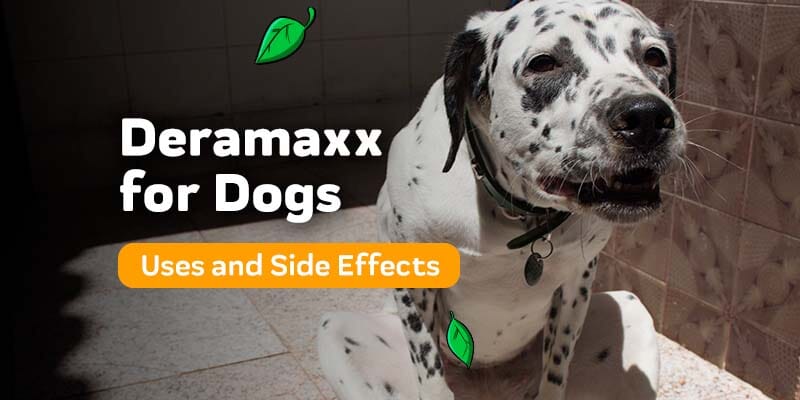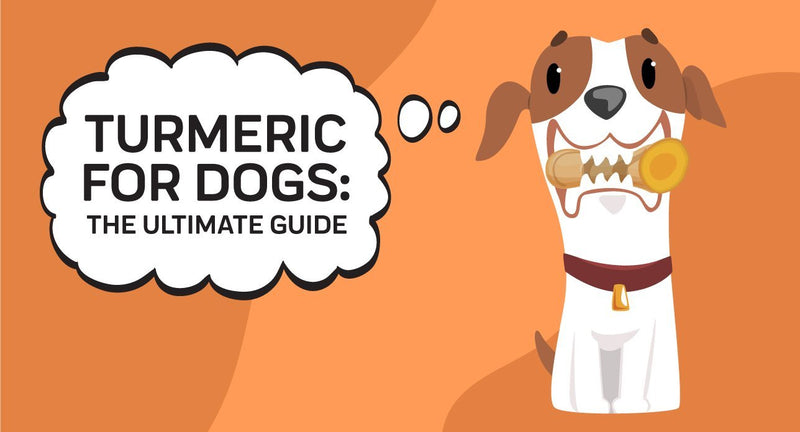Can a dog take Aleve? Naproxen or Aleve is an over the counter pain medication. It is often prescribed for people to deal with pain relief such as backaches, headaches, mild arthritis, menstrual cramps, and toothaches.
- Can Dogs Take Aleve?
- What Is Aleve?
- Is Aleve Safe For Dogs?
- Aleve Dosage For Dogs: How much Aleve Is Poisonous To Dogs?
- Innovet Pet Products As A Natural Alternative To Pet Medications
- Why Use Natural Remedies?
- What To Do If Your Pet Dog Ate Aleve?
- Can I Give My Dog Any Other Painkillers?
- What Is The difference?
- What Is The Problem With Aleve?
- What Are The Risks Of Giving Aleve To A Dog?
- Can My Dog Get Stomach Problems From Aleve?
- Can My Dog Suffer From Kidney Failure From Taking Aleve?
- What Are The Symptoms Of Aleve Poisoning In Dogs?
- What Treatment Will My Dog Need If He Was Poisoned By Aleve?
- What Natural Remedies Can I Give My Dog For Arthritis?
- What If My Dog Is In Severe Pain?
- What Else Can I Do For My Dog When He Is In Pain?
Like humans, dogs also tend to experience these health problems, especially arthritis. Even though dogs may also suffer from the same ailments as humans, you can’t just
rush to a store and get the same pills for your pet dog that you take for pains and aches.
Can Dogs Take Aleve?
Can dogs take Aleve? Before you gain any kind of knowledge about the medication, you need to know that Aleve can be extremely toxic for your pet dog. Most pet owners make the wrong assumption that Aleve is extremely safe for their dogs. This is a big mistake.
You will be surprised to know that a single pill of Aleve can be life-threatening for many dog breeds. The side effects of Aleve include kidney failure, bleeding in the stomach, and death.
So, what’s the bottom line, can I give my dog Aleve? The fact is you should never give human medications to your pet dog. Never do this unless you are clearly instructed to do so by the veterinarian. It is best to keep all medications secured in the home. This will help prevent accidents.
Can dogs ever have Aleve? There are many dog specific pain meds available in the market and these include Deramaxx, Metacam, and Previcox. This means you don’t have to give your dog Aleve® medication for any kind of pain.
Veterinarians often recommend other low doses of painkillers like aspirin. Aspirin can be a helpful way to relieve a dog's pain, but it's important to remember that even baby aspirin can cause side effects in some dogs. This happens when they are given the wrong dose.

Can I Give My Dog Aleve: What Is Aleve?
Aleve® is the brand-name for naproxen. It is one of the most common and popular pain relief medications in the world. Naproxen belongs to a class of medications known as NSAIDs (Non-Steroidal Anti-Inflammatory Drugs).
The medication is sold under the brand names Anaprox, Naprelan, and Naprosyn. All these drugs work the same way. They are effective in relieving arthritis pain, fever, stiffness, swelling, and other types of pain.
Can You Give Aleve To A Dog: Is It safe?
Aleve is a painkiller that is available over the counter. It is effective in relieving pain, but it has a high risk of side effects. The most common side effects are kidney or liver problems. These side effects can be very severe, and they can cause chronic pain. The risk of these side effects is increased in dogs, so veterinarians don’t recommend Aleve.
There are many alternative painkillers that are FDA-approved for dogs. These painkillers have a lower risk of side effects, and they are considered safe. If your dog is in pain, talk to your veterinarian about the best option for pain relief.
Aleve is often prescribed to dogs only as a last resort after all other safe painkiller alternatives fail to provide relief from pain. A very low dose of Aleve is prescribed to ensure that the side effects are not adverse.
It is important to understand that the difference between an overdose and safe dose is quite small. Never give your pet pup Aleve unless it is specifically recommended by the veterinarian.
Avoid accidental overdoses of the medication by storing Aleve in a place that is not accessible to your dog. If you have been recommended Aleve for managing pain, you should ensure that you don’t accidentally drop a pill when your pet dog is around.
You will be surprised to know that there have been accidental deaths of dogs who

Aleve Dosage For Dogs: How much Aleve Is Poisonous To Dogs?
If your pet dog swallows Aleve it will usually take 30 minutes to 3 hours for it to get absorbed in the bloodstream. This means you need to act fast. How much can you give a dog Aleve? A single tablet of Aleve contains 200-mg of Naproxen. This is enough to kill large and small dogs. Aleve gets quickly absorbed in the bloodstream.
Adverse side effects can happen even with a single low dose (2-mg/lb.) of Aleve. Rapid kidney failure happens with higher doses. The side effects happen within 2 – 24 hours depending on the dosage and size of the dog.
Innovet Pet Products As A Natural Alternative To Pet Medications
Most pet owners are not happy with the adverse side effects of using prescription medication such as cerenia, gabapentin, Keppra, Prozac, prednisone (steroids), rimadyl, tramadol, and Nonsteroidal anti-inflammatory drugs (NSAIDs). The long-term effects of using these medications are not good and pet owners are not enthusiastic about using them.
While pain relief is the primary objective of using these medications, the long-term adverse effects far outweigh the short-term pain relief they provide. As a result, many pet owners are now turning to over-the-counter and natural pain relief options that are better for their pets in the long run.
Not only do these options provide pain relief without the risk of long-term side effects, but they also tend to be more affordable than prescription medication. So if you're looking for a way to treat your pet's pain without breaking the bank or putting their health at risk, consider one of these natural pain relief options.
Common Conditions For Prescription Medicines
Why Use Natural Remedies?
The adverse effect of medications often compels pet owners to look for safe alternatives. They look for natural and safe alternatives to pet prescription medications. Natural botanical supplements and proper diet are the best alternatives to harmful pet medication.
Instead of taking prescription medications all through your life, it is best to change the diet and opt for natural supplements. Most pet owners are opting for natural remedies for their pets. Plant-based supplements are a popular choice as they provide relief from health issues that made the pet owners seek pet prescription medications.
If as a pet owner you want a more holistic pet care approach, you should ensure that you find the best health regimen for them. You will have to decide whether you want to use natural supplements along with using pet prescription medications orswitch to only natural supplements for your pet dog.
Remember that each breed of dog is different. Innovet Pet Products are safe and can be used with any medication that you are using for your dog. These products can easily fit into the daily routine of the pet.
What To Do If Your Pet Dog Ate Aleve?
If your dog accidentally swallows a pill of Aleve, you should take it to the veterinarian. If the tablet was taken by the dog only a few hours back, the veterinarian may recommend a pill of hydrogen peroxide so that the dog vomits the dosage. The size of the dog will determine the dosage.
It is always advisable to take your dog to the veterinarian for a checkup even after it vomits the pill. A small amount of pill may have been absorbed in the bloodstream. The veterinarian will give a dose of activated charcoal to the dog. This will help in absorbing any remaining traces of Aleve in the bloodstream.
Activated charcoal will work its magic only when it physically comes in contact with Aleve present in the intestines and stomach. The charcoal will bind the toxins. This will prevent the body from absorbing any more of the pill. Activated charcoal is effective only when it is given within a couple of hours. Treatment becomes difficult after a few hours.
Can I Give My Dog Any Other Painkillers?
NSAID painkillers block the effects of enzymes in the body. Enzymes are the cause of inflammation and pain. Aleve is not recommended for dogs to help relieve pain. Veterinarians may recommend other types of NSAID painkillers as a pain reliever. These medications should be given to dogs only when they have been specifically recommended by vets.
The NSAID painkillers that are prescribed by veterinarians and approved for use by the U.S. Food and Drug Administration (FDA) include:
What Is The difference?
It is best to use NSAID painkillers specifically formulated for dogs. They work quite differently from Aleve. There are some enzymes that are blocked by Aleve and this can result in adverse side effects.
NSAIDs such as Metacam, Previcox, and Deramaxx are considered better at blocking specific enzymes (COX-2) that cause pain and inflammation. This makes the medications safer than Aleve.
What Is The Problem With Aleve?
Aleve reduces inflammation and pain in the body. This is done by blocking an enzyme known as cyclooxygenase (COX). Cox produces prostaglandins. These are hormones that help with kidney function and protect the gastrointestinal system.
What Are The Risks Of Giving Aleve To A Dog?
Aleve is extremely toxic to dogs. It has been found to cause ulcers in the stomach even in humans. The intestinal system and stomach of dogs is more sensitive to the side effects of Aleve. It is also known to cause kidney problems, gastrointestinal bleeding, and stomach ulcers. It can be fatal in most cases.
Can My Dog Get Stomach Problems From Aleve?
Yes, Aleve can lead to stomach problems. A mucous lining protects intestines and stomach from getting damaged by acids present in the stomach.
The protective lining gets damaged with the consumption of Aleve. Digestive juices and acids attack the stomach, and this can result in raw spots (ulcers) or an open sore.
If the stomach ulcers are severe, they can result in bleeding. In some cases, they can even breach the stomach. This life-threatening condition is known as gastrointestinal perforation and will require emergency surgery. Bacteria from the stomach will enter
Can My Dog Suffer From Kidney Failure From Taking Aleve?
Prostaglandins are hormones that control blood flow and filtration in the kidneys. Aleve blocks the production of these hormones. Dogs poisoned with Aleve are most likely to develop kidney failure or dysfunction.
Even in dogs, kidneys are quite resilient. This means kidney dysfunction is reversible in your pet dog. If kidney failure occurs, the veterinarian will monitor the urine and blood levels of the dog. This is done for a few days. IV treatment is recommended for kidney recovery. You do need to remember that high doses of Aleve will cause irreversible and permanent kidney damage, and ultimately, kidney failure.
What Are The Symptoms Of Aleve Poisoning In Dogs?
The symptoms of Aleve poisoning include anemia (inadequate oxygen or red blood cells in the blood), black or dark-colored feces, bloody diarrhea, depression, internal bleeding, irregular heartbeat, lethargy, stomach ulcers, vomiting, and weakness.
The dog may suffer from other severe symptoms if there are other health complications such as liver damage, kidney inflammation or stomach perforation.
The Aleve toxicity symptoms tend to increase over a 72-hour period. The dog will need to stay under observation for a few days at the veterinary hospital. Dogs that have suffered severe overdose will need to stay at the hospital for at least 3 – 5 days or until they become healthy.
What Treatment Will My Dog Need If He Was Poisoned By Aleve?
Get in touch with the veterinarian immediately if you think that your dog has accidentally consumed Aleve. Quick treatment will ensure better chances of survival. A blood transfusion is recommended if the dog has lost blood due to internal bleeding.
A blood transfusion will help eliminate Aleve from the bloodstream of the dog’s body.
What Natural Remedies Can I Give My Dog For Arthritis?
If the dog is suffering from aching joints or pain due to arthritis, supplements are a good treatment option. Glucosamine is recommended for dogs suffering from joint pain. Even though it is not a painkiller it will help in repairing the damaged cartilage in the joints. This helps relieve pain and improves mobility.
Joint supplements
The supplements are available at the same stores (pharmacy, grocery) over the counter where you can purchase NSAIDS. Before you choose to give any kind of pain meds or joint supplements, it is always best to consult a veterinarian. When buying over -the-counter supplements ensure they are dog specific supplements that are recommended by the veterinarian.
Even though supplements are helpful there are certain risks associated with them. There is a possibility that they will interact in a negative manner with other medications of the dog. Quality is also difficult to ascertain as not all brands are made from the same source. Dogs suffering from other health conditions are susceptible to developing side effects from supplements.
Before you choose to give any kind of supplements to the dog, it is always best to consult a veterinarian. This is especially true if the dog is suffering from liver or kidney problems. Just like Aleve if the supplement is not eliminated from the body it can be poisonous.
Common Causes Of Dog Pain
Pet owners panic when they see their dog in pain. Most often it is tough to know the cause of the pain. The dog will be unable to tell the pet owner about the pain and this can be frustrating.
It is the responsibility of the pet owner to recognize if the dog is suffering from any kind of discomfort. Recognizing the signs of pain is important as dogs are not able to communicate clearly.
Conditions such as a deep cut on the outside may look painful but the pain that the dog is suffering on the inside may be more painful.
The pain that the dog is suffering from may be due to ear infections, arthritis or even cancer. Irrespective of the condition, it is important that you understand what is causing the pain. This will help save the pet’s life.
Health conditions that are more painful than others include:
- Arthritis
- Cystitis (bladder inflammation)
- Bone Cancer
- Ear Infection
- Pancreatitis
- Periodontal Disease
- Peritonitis
- Slipped Disc
What If My Dog Is In Severe Pain?
Watching the dog writhing in pain is difficult for any pet owner. If the dog is suffering from chronic or severe pain, you should consult the vet immediately. Avoid trying to fix the pain on your own and only do what the vet recommends. The veterinarian may recommend dog specific medications like NSAID. Other powerful painkillers like Amantadine, Gabapentin, or Tramadol are also recommended.
Multiple combinations of NSAIDs may also be recommended by the vet. You do need to remember that this will increase the risk of gastrointestinal ulcers. An antacid is recommended if the dog is at risk of gastrointestinal side effects. Antacids reduce stomach acids, and this helps in preventing ulcers.
It is always important to understand that the veterinarian will know what is best to be given to the dog. The vet will choose the medications based on the dog breed, size, medical history, and other factors.
What Else Can I Do For My Dog When He Is In Pain?
Ensure the comfort of your dog when you see it in pain. If the dog has a crate or bed, add an extra blanket or pillow to make it comfortable. Keep the food and water close to the bed.
If the dog has trouble with mobility, it may be suffering from sore knees, arthritis, hip problems such as hip dysplasia, osteoporosis or recovering from surgery. Lift and carry the pet dog whenever possible (outside to use the bathroom or up and down the stairs). Rugs on non-carpeted floors will prevent the dog from slipping.
Holistic remedies (exercise and diet) should be increased depending on the overall health of your dog. Good health is important to help resist degenerative illnesses (arthritis) and for repairing damaged tissues. Keeping the dog at a healthy weight will help prevent wear and tear of the joints. Take the dog for regular walks. Exercise the dog as long as it doesn’t aggravate the pain.
For more information contact Innovet Pet today!
Sources:
Approved by:
Dr. Sara Ochoa
Doctor of Veterinary Medicine, St. Georges University

Thanks for stopping by!
P.S. We Love You!

















